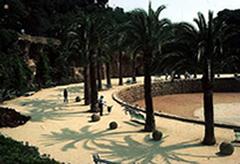Stage 2: SemifinalistsWe are happy to announce that 25 contestants out of 101 entries have advanced to the Semifinalist round (Stage Two) of the Berkeley Prize 2004 competition. This includes thirteen teams of two or more persons. Architecture students from 28 countries entered this year's competition, including: Australia, Austria, Canada, the Czech Republic, Greece, Egypt, Indonesia, Iran, Israel, Nepal, New Zealand, Nigeria, Singapore, Spain, Uruguay, and the United States. Semifinalists are invited to submit a 2500-word essay based on their 500-word proposal by midnight, Pacific Time, February 26, 2004. The top five to seven essays will be selected for final judging by the Berkeley Prize Jury. Auburn, Ryland, University of Southern California, USA: "A Tale of Tent Cities" Badran, Abed Elkhaleq, University of Southern California, USA: "A Tale of Tent Cities" Auburn, Ryland, Wizo-Canada College, Haifa, Israel, Israel: "VOLUTION AND NOT REVOLUTION: A paradigm of urban upgrading in Arab villages and refugees' cores in Israel" Dhakhwa, Kamana, Institute of Engineering, Nepal: "A VOICE OF POVERTY" Friend, Nicholas, Yale University, USA: "Design for the Displaced: Providing for an Unheard Voice" Heatherton, Christina Yuriko Pablo Cid-Barraza and Chris Grabill, UC Berkeley, USA: "A Home in the Homeland?" Hildebrand, Tracy, Savannah College of Art and Design, USA: "The Anatomy of Community" Hoppenworth, Nicole, Iowa State University, USA: "Solutions?" Hourigan, Kathryn, The University of Adelaide, South Australia, Australia: "VISIONS for the displaced; displacing the role of the architect." Hyde, Adrian, Deakin University, Australia: "URBAN SURVIVAL OF THE HOMELESS - Recognizing the Homeless as People of the City." Koff, Daniel, Washington University in St. Louis, USA: "Architecture as a Tool for Building Community" Levy, Barak, Technion - Haifa, Israel, Israel: "The Right Path" Ling, Andrea, University of Waterloo, Canada: "Architecture for the Homeless: An exercise in lack of control" Nkya, Angela, Iowa State University, USA: "At Home in the City" Pesudo Casas, Jordi, ETSAB, Spain: "Immigration and public space in Barcelona" Pupilli, Adriano, University of Sydney, Australia: "Paper House - Self-help, waste reuse and composite technology towards low-cost and sustainable housing" Rea, John, Virginia Polytechnic Institute, USA: "Let's have dinner" Riesser, Adriane, University of Michigan, USA: "Address Homelessness Within Ann Arbor, Not Without It" Sauer, Dylan, University of Cincinnati, USA: "(Dis-, Mis-, Re-) Placement in the Urban Realm" Surface, Susan, Parsons School of Design, USA: "Private Sector, Public Good: The Necessity of Economic Sustainability in Architectural Activism" Thomson, Sandra, Dalhousie University, Canada: "Productive Lives: Eradicating the Barriers" Tubic, Snezana Ana Jeinic and Tajda Dedic, Technische University, Austria: "CHANGING ARCHITECTURE" Vergne, Eric, Savannah College of Art and Design, USA: "Homeless Integration into Society through Urban Farms" Voreakou, Myrto-Maria, National Technical University of Athens, Greece: "DIS-PLACED PEOPLE REINHABITING THE CITY OF ATHENS" Wong, Shujun, National University of Singapore, Singapore: "A more public public space" Zelaya, Franyel, Savannah College of Art and Design, USA: "While the Music Lasts" INSTRUCTIONS TO SEMIFINALISTS
The essays are due at 12:00 midnight, Pacific Standard Time (24:00 hrs. Universal Time), February 26, 2004 through the online submission system available on this page.
THOUGHTFULLY CONSIDER YOUR IDEAS BEFORE WRITING
TRY OUT YOUR IDEAS ON OTHERS BEFORE SENDING YOUR ESSAY Additional Help and InformationAre you in need of assistance? Please email info@berkeleyprize.org. |
|

